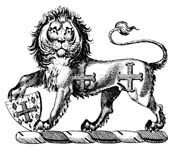
Reflections on Pope John Paul II’s Legacy
THE INTERREGNUM
As I write this, Pope John Paul II has died only a few days ago, and the Cardinals are beginning to assemble in Rome. So you know what I don’t know — the identity of the new pope. Meanwhile, a few words about the interregnum and the obituaries. Most of the news media’s preferred reflections on John Paul’s papacy tended to go like this (clichés included):
He was a man of dynamism and charisma. He captivated much of humanity by the sheer force of his personality, forged in the twilight struggles with Nazism and Communism. Later, he won universal admiration as he stood up to the ravages of Parkinson’s disease. Many around the world were personally moved by this successor to St. Peter, as he crisscrossed the world stage, traveling to 129 countries. His influence extended far beyond his Church, and he evoked strong feelings among the faithful. He was the first truly global pope — a world statesman. He was both a man of the people and a pope for the ages.
Nonetheless (the obituaries continued), many Catholics were distressed by his opposition to change. For all his travels, for all his fondness for indigenous people wearing their native costumes, he became increasingly out of touch with the modern world. Women, homosexuals, and even some priests and nuns urged him to be “more sensitive to their needs” (a mini New York Times editorial within an obit). Once the man of the moment, the Pope in the end was not open to change. A new dawn had seemed imminent at the Second Vatican Council, but those bright hopes were dashed. He centralized authority in his own office. He was rigid. He resisted easy labels, yes, but in the end he was a conservative, even a reactionary pope. And he cloned himself in the College of Cardinals.
He was much involved in politics (the obituaries continued), and with his Polish roots he found a way to prevail over Communism. Like the head of any political body, he was entitled to have his own policies. But policies can be changed (journalists are well aware of that; it’s the reason many of them became journalists). John Paul had a policy on abortion (against), on contraception (against), on homosexuality (against), on euthanasia (against), on the death penalty (against). Despite grumbling from the faithful in the pews, and polls showing that a majority of American Catholics favor women priests and an end to priestly celibacy, the Pope stubbornly refused to change policies. Not that it mattered in the end, because these days the faithful will follow their own consciences regardless of what any pope tells them. So now there will be a new pope, a new administration in Rome, and a renewed opportunity for change. Enlightened Catholics everywhere are urging the Church to move in a new direction.
And so it went.
Old favorites were trotted out for TV and radio — given one more tour of the Quote Circuit. Trusty newsroom Rolodexes rolled around to the same old experts, who hardly seemed to have changed since the time of Paul VI. Once more the lean visage of Thomas Reese, S.J., the Editor of America, who has been heard to say that global warming will be a key issue confronting the new pope. Richard McBrien again, he of Notre Dame’s Theology Department, who dons his Roman collar for the benefit of the cameras. He may not sound like a priest, but he knows it’s advantageous to look like one. He is open to the possibility that Jesus was married. McBrien reassured his followers on the matter of women priests: They are on the way; it’s only a matter of time; they can’t be stopped. The priest shortage will see to that.
The irreverent Andrew Greeley, 77, a priest in Chicago and the author of sex novels, said that the Pope had resorted to “the old techniques of repression.” But they hadn’t worked. They had only “destabilized the church even more, and polarized it.” Chester Gillis, a theology professor at a Jesuit university, said that under John Paul, a “disconnect” had emerged. Some American Catholics preferred their very own “cultural principles” to obedience. The cultural principles he had in mind went unspoken, but can be guessed.
Commentators aplenty grumbled that the Pope had failed to “modernize” the Church. To which, several years ago, Joseph Sobran responded: “The old Pope is out of step with modern life! Well, I should hope he is. Complaining that the Pope is out of step with modern life is like accusing Moses of being out of step with the Golden Calf.” Mark Steyn of London’s Daily Telegraph said that “the root of the pope’s thinking — that there are eternal truths no one can change even if one wanted to — is completely incomprehensible to the progressivist mindset.”
You May Also Enjoy
Sounds like it, given what Bishop Thomas Gumbleton says.
"My show has brought more people back to the Catholic Church than anything the Pope has ever said."
Church doctrine regarding contraception is one of the least understood and accepted parts of her conjugal and sexual ethics.

